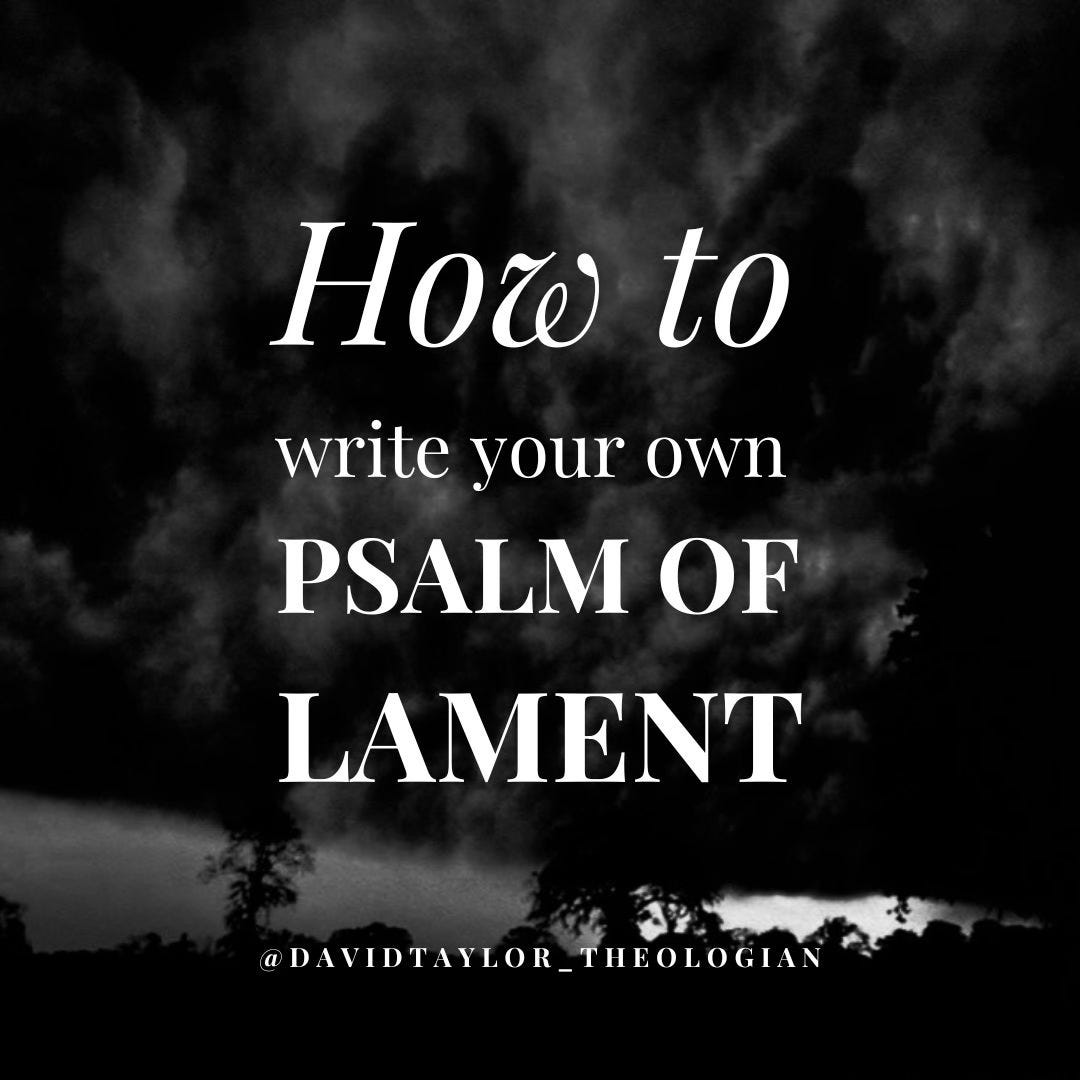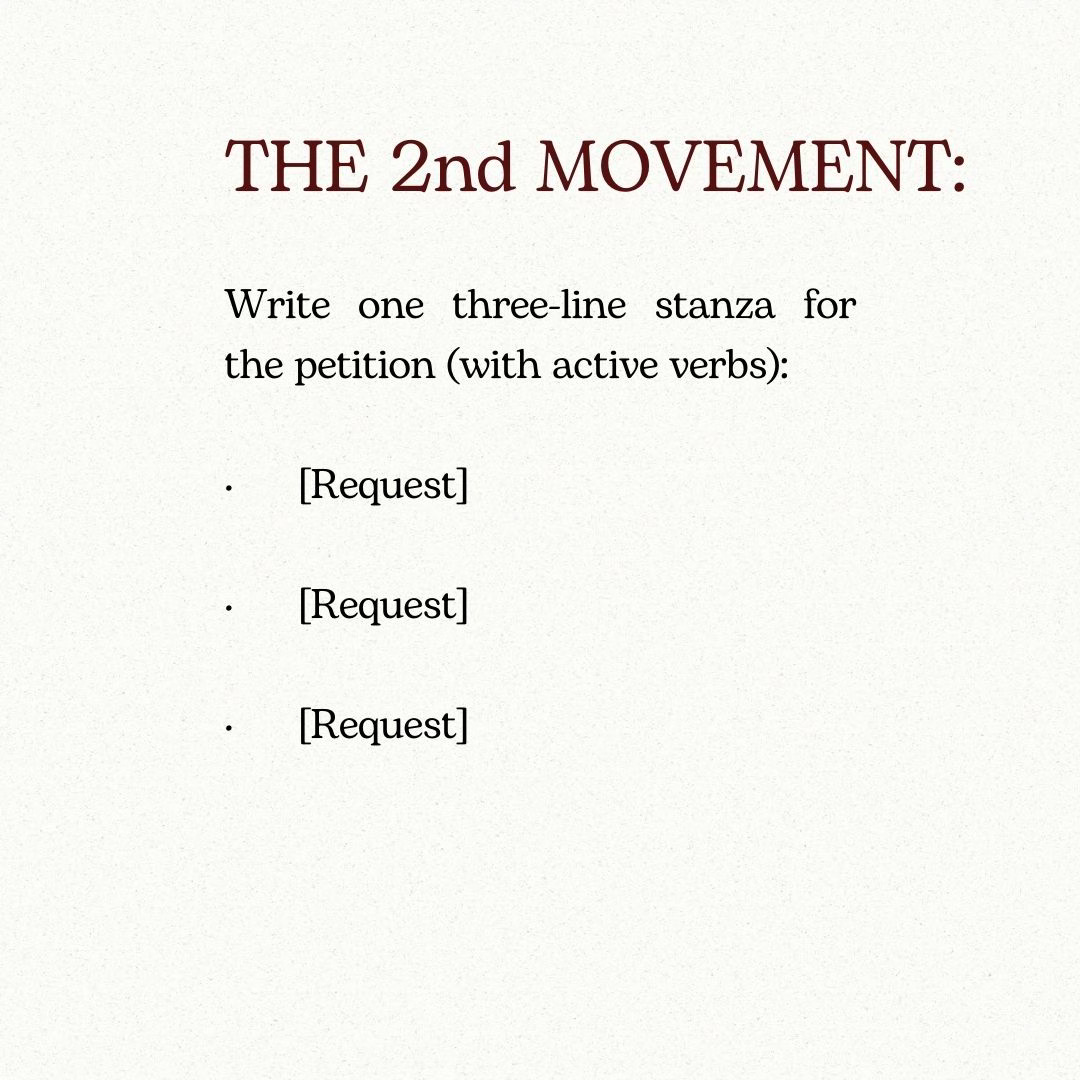
“In the world of the Psalms,” writes Eugene Peterson in Answering God, “honesty is a nonnegotiable for how we approach God, how we view others, how we view ourselves. It’s a gritty, no-nonsense honesty.”
This is similar to what Frederick Buechner once said in his memoir, Now and Then:
“Unless those who proclaim the Gospel acknowledge honestly the darkness...they might as well save their breath for all the lasting difference their proclaiming will make to anybody.”
It’s Holy Week and I can’t think of a better time to be honest to God than this week in which we trace out the passion of our Lord. The Psalms, of course, help us in this regard. But there are times that we need to be able to say to God how we feel—how hurt, or angry, or confused, or lonely—in our own words.
I created a handout on how to write your own psalm of lament that I use with my students at Fuller Seminary in my course, “Spiritual Formation through the Art of the Psalms,” and thought I’d share it here, too.
There’s an inestimable benefit, I’ve found, to putting a name to our sorrows, putting it in ink, and putting it on our lips.
The psychiatrist Curt Thompson, in his book, Anatomy of the Soul, writes how speaking the psalms out loud facilitates “the integration of our brains,” and enables us thereby to really feel felt, and seen, and loved by God.
This world is broken in an infinite number of ways, to state the blessed obvious, and each of us is caught in the crosshairs of sinful and dehumanizing forces, both of our own making and through no fault of our own.
God knows we need to tell someone how much we hurt because of it. God knows we need help to make sense of the senseless and to give coherent shape to our often-incoherent feelings.
Do take advantage of this handout. It’s a three-line, three-stanza poetic form that’ll give you a relatively easy way to tell God the honest-to-God truth about your pain.
If you feel comfortable, share it with somebody.
Share it with a friend or a family member. Do it as a household or small group or staff. Share and listen with care, and trust that God will meet you “in the depths” with the comfort that you sorely need.
I’m including a PDF below of the entire handout or you can scroll through the slides here. I also write at greater length about the topic in my psalms book, Open and Unafraid: The Psalms as a Guide to Life.
I leave you here with a Prayer for Holy Tuesday from my book, Prayers for the Pilgrimage, which we commemorate today on the church calendar:










